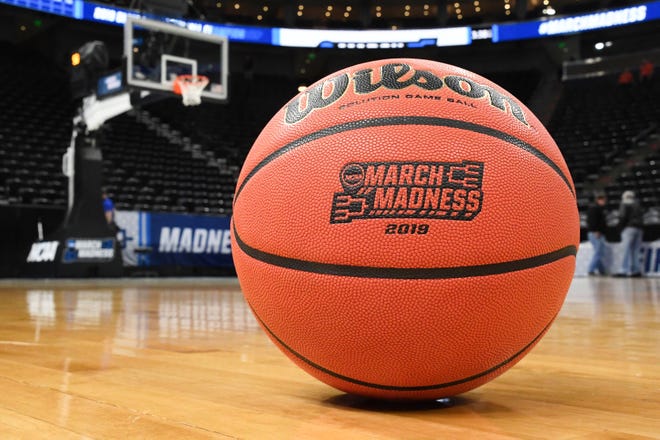NCAA Plans for March Madness 2021
January 21, 2021
Following the disappointing cancellation of the highly-anticipated March Madness in 2020 due to coronavirus concerns, the NCAA officially announced that the college basketball tournament would proceed in 2021, with adjustments made to counter the spread of COVID-19.
“The 2021 version of March Madness will be one to remember, if for no other reason than the uniqueness of the event,” Dan Gavitt, NCAA Senior Vice President of Basketball, said.
This year, the 67 tournament games, which are typically held in 13 cities across the country, have been condensed to one city, Indianapolis, to decrease travel and lower the chances of player exposure to COVID-19.
Indianapolis was partially chosen because of the organization’s good relationship with the city—the NCAA has its headquarters there—as well as for its history of hosting large sporting events. Additionally, Indianapolis had already been selected as the site of the 2021 Final Four games back in 2014, so NCAA organizers decided to work backwards from the last games in the bracket when deciding on a location.
“When we came to the difficult decision… that having the tournament this year in a single geographic area may be the only way, and certainly the most logical way, to hold the tournament from a safety and health perspective, then where it ended seemed like the best place to consider where it should start,” Gavitt said.
Other NCAA-organized college basketball tournaments will likely also adhere to the same plan and hold all their games in the same city instead of using the traditional format. The women’s basketball tournament is slated to take place in San Antonio, and the men’s D-2 and D-3 basketball tournaments will be held in Evansville and Fort Wayne, respectively.
In compliance with state and county COVID-19 guidelines, the entire tournament will take place in a bubble-like environment. While the NCAA has shied away from explicitly calling the format a “bubble,” with Gavitt instead referring to it as a “highly controlled environment,” the structure isn’t unsimilar to isolation zones used by the NBA and NHL.
Qualifying teams will be assigned designated meeting and practice areas in the Indiana Convention Center, and will be expected to stay on their floors in nearby hotels for the duration of the tournament. The NCAA will work with local organizations like Indiana Sports Corp and Visit Indy for logistic support, and a local health partner in the city will handle COVID-19 testing.
The NCAA will also partner with the state of Indiana to distribute hundreds of thousands of March Madness-branded cloth face masks to the state’s residents prior to the tournament’s start in a program dubbed “Mask Madness.”
According to tournament organizers, these plans have been months in the making, and using a bubble-like environment to hold March Madness was hardly a spontaneous decision.
“It was conceivable to me when the NBA went into a bubble that if things didn’t improve dramatically, the NCAA might be looking for a similar solution, a controlled-site environment, so we just went to work hosting smaller games and learning things that are going to help a lot on the back end,” Indiana Sports Corp President Ryan Vaughn said.
The tournament is still expected to proceed with a full roster of 68 teams, and games will hosted by six sites in Indianapolis and the surrounding area: Bankers Life Fieldhouse, Hinkle Fieldhouse, the Indiana Farmers Coliseum, Mackey Arena in West Lafayette, Simon Skjodt Assembly Hall, and Lucas Oil Stadium. The NCAA has yet to reveal protocol on a team becoming unable to play for COVID-related reasons, but the tournament schedule is tentative and subject to change, with only Selection Sunday and Final Four dates set in stone.
Game attendance will likely be limited to family members of qualifying athletes and coaches, and it’s still unclear if additional fans will be allowed to purchase tickets. The NCAA is expected to come to a decision about fan attendance by late January or February.
Ever since the tournament was cancelled last year, coaches have been eager to support any version of a 2021 March Madness, especially because the 2020 cancellation—the first time March Madness had been cancelled since the tournament’s inception in 1939—resulted in a $375 million loss for the NCAA, a cost that trickled down to competing colleges.
Still, despite the many hurdles the NCAA and local organizers have faced and will no doubt continue to face, the 2021 college basketball tournament is shaping up to be a major success.
“This is a historic moment for NCAA members and the state of Indiana,” NCAA President Mark Emmert said in an announcement. “We have worked tirelessly to reimagine a tournament structure that maintains our unique championship opportunity for college athletes. The reality of today’s announcement was possible thanks to the tremendous leadership of our membership, local authorities and staff.”
Photo courtesy of USATODAY.COM

